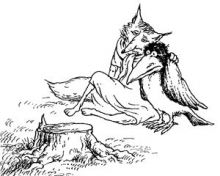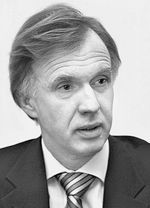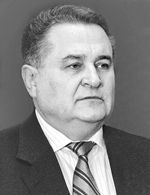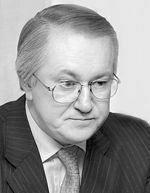On September 12 the Diplomatic Academy of the Ministry of Foreign Affairs in Kyiv held the forum “Ukraine’s Non-Bloc Policy in the European Context,” organized by the Institute of World Politics and NATO Liaison Office in Ukraine with the assistance of governments of Estonia, Norway, Poland, and Switzerland, as well as Geneva Center for the Democratic Control of Armed Forces.
As is known, in June 2010 the ruling coalition of the Party of Regions and Communists adopted the Law “On the Principles of the Domestic and Foreign Policy of Ukraine,” reversing the course towards integration into NATO system of collective security, previously stipulated by law, and introduced instead the non-aligned status. Over two years have gone by, so it is time to gather stones or, in other words, discuss whether Ukraine has benefited from this status and, correspondingly, resume whether the refusal from further integration into NATO was well-reasoned. It is no less important to understand why this turn took place.
In 2003 the whole faction of the Party of Regions, currently a dominating force in parliament, voted for the Law “On the Foundations of the National Security of Ukraine,” which declared Ukraine’s aspirations to enter the European Union and NATO. However, in 2004, after the Istanbul summit and a many-hour meeting with President Putin, President Kuchma ordered to take out the words about possible accession to military and political alliances (in order to provide the national security of the state) from the Military Doctrine.”
Can one speak about any consistency of Ukrainian policy after that? Moreover, Kuchma’s successor Viktor Yushchenko did not put any efforts for Ukraine to be granted the Membership Action Plan (MAP). So there was no surprise when his rival Viktor Yanukovych, who became president owing to anti-NATO campaign, among other things, refused from the course towards NATO membership. However, none of the officials can explain what the non-aligned status means and whether Ukraine has benefited from it. The Party of Regions hoped that the refusal from accession to NATO would improve its relations with Russia. But how can one explain the Kharkiv accords then? Why nobody has managed yet to reconsider the gas agreements and delimit the Kerch Strait and the Sea of Azov?
The Day posed to experts the following question: How come Ukraine, almost having Membership Action Plan in its pocket, went down to a non-aligned status and what did this status give to our country?
“UKRAINE HAS LOST ANY POSSIBLE CHANCES TO ENSURE ITS SECURITY”
Volodymyr OHRYZKO, ex-minister of foreign affairs of Ukraine:
“Ukraine became a non-bloc country in 2010 when the new power approved the new edition of the Law ‘On the Principles of the Domestic and Foreign Policy of Ukraine.’ The clause stipulating Ukraine’s NATO aspirations was deleted from the text of the law. It was replaced by the clause about the so-called non-aligned status. Nobody in power can explain the meaning of this notion.
“Apparently, this decision was dictated by Moscow’s pressure and one of the conditions of the big ‘package,’ whose impact we gradually come to feel. I mean the prolongation of the Black Sea Fleet’s stay in Ukraine, the ‘language’ issue, etc.”
“This is a very dangerous tendency because with this decision Ukraine lost any chances to guarantee its own security and now we have no clear guidelines in this aspect. Whereas previously NATO understood Ukraine’s strategy in foreign policy and security, now there are no such guidelines concerning Ukraine. Russia treats Ukraine like before, because in spite of everything Ukraine is not entering any alliances – political, military-political, or economic – where Russia is dominating.
“In fact, Ukraine’s non-aligned status is impossible to implement. We are lacking very simple things for this, finances above all. If anyone takes Sweden, which is not part of NATO or any defense structure, as an example and analyzes its military expenditures, they will understand that Ukraine (if we compare our standards with Swedish ones) will have to spend about 22-25 billion euros for its defense. If I’m not mistaken, our budget today makes no more than 1.5 billion euros. So this decision in fact means that with no possibilities to provide our country with an adequate military system, we doom it to defenselessness. This is the practical outcome of the non-bloc status.”
“THE NON-ALIGNED STATUS HAS NOT RESOLVED ANY PROBLEMS WITH RELATIONS EITHER WITH RUSSIA, OR GERMANY”
Aliona HETMANCHUK, head of the Institute of World Politics:
“The decision on moving from integration into NATO to the non-aligned status was absolutely situational, though it was caused by a whole number of factors, above all the attempt of the newly elected President Yanukovych to reset the relations with Russia. Figuratively speaking, the non-aligned status was a kind of sedative. It has changed in fact the emotional background in relations between Ukraine and NATO both in our country and in its dialogue with other countries, above all Russia. The lack of extra emotions allowed Ukraine without unneeded excitement to continue its practical cooperation with NATO, which in some aspects, like holding international military training on Ukrainian territory, has become more efficient than in the time of Ukraine’s integration into NATO. One more positive sign of Ukrainian non-aligned status, as for me, was the automatic removal from the agenda the discussion on Ukraine’s possible membership in Collective Security Treaty Organization. After all, a positive side of the non-aligned status is that unlike regular neutral status, it leaves the doors open for its future integration into NATO. Even the fact that Ukraine continues to implement the Annual National Program which is de-facto a kind of a substitute for the Membership Action Plan and has been created for the countries that are integrating into NATO, confirms this openness. All the more so, even neutrality in the modern world is quite an indefinite thing. For example, they say Finland, to which one likes to make references in Ukraine, stopped being neutral after entering the EU.
“But every sedative has both an expiration date, and side effects. In case with Ukrainian non-aligned status there are several side effects. First, as a result of less emotional dialogue between Ukraine and NATO, the interest to the Alliance both in Ukrainian political elites and expert circles, as well as the public discourse, has decreased. It should be admitted that the topic of NATO cooperation has become marginal. Furthermore, the difference between integration and cooperation has turned out to be such a subtle matter for many Ukrainian officials, especially in the regions, that not to be accused of lobbying accession to NATO, they started to detach themselves from the cooperation with the Alliance. Second, the nonaligned status has not resolved the question of national security. It has only played up to the widespread stereotype in Ukraine that ‘nothing and no one is threatening us,’ therefore we need not take care of our security. But sooner or later Ukraine will have to understand: security is not an abstract thing, like the experts like to say at various conferences, this is an alpha and omega of statehood. Third, the non-aligned status has not resolved any problems in Ukraine’s relations either with Russia (probably, Moscow would have been satisfied more by a constant neutral status, rather than the abstract non-aligned status), or with Germany, which although skeptical about Ukraine’s integration into NATO, did not understand its non-bloc status either.
“The main international players who in their time made the decision on the Membership Action Plan for Ukraine have concluded: giving a NATO Membership Action Plan to Ukraine could bring more challenges and dangers than not giving any. It is no secret to anyone: most of those challenges and dangers were connected with Putin’s Russia. To be more concrete, a great problem on the way to acquiring a MAP was the fact that it was too much politicized. Just a preparation instrument was given the same status as real membership. One more thing: Ukraine could get the MAP back in 2004 at the Istanbul Summit without any excitement in the country and beyond, unless the desire of our Western partners to make sure that our presidential elections would be democratic. Another hindrance was that Ukrainian elites did not reach any consensus concerning the integration into NATO. When they came to agreement concerning this issue, the support of NATO membership among the population reached the highest point – 32 percent (2002). Such a consensus along with the more or less efficient information campaign, not the disastrous one held in 2008, could provide a decent level of civic support and remove one of the counterarguments against granting the MAP, used by the skeptics of such a decision.”
“UKRAINE WAS PREPARED TO RECEIVE THE MEMBERSHIP ACTION PLAN”
Yevhen MARCHUK, former defense minister, former prime minister, former secretary of Ukraine’s Council for National Security and Defense:
“It should be reminded that the decision to improve cooperation with the NATO was made by the Council for National Security and Defense in 2002, and the law “On National Security” and the new edition of the Military Doctrine were adopted in 2003. And these were the years when president Kuchma was desperately looking for ways out of the international isolation. And after the NATO Prague Summit, when the US and the leading countries of the alliance demonstratively showed their position towards Kuchma personally, he realized that the matter is quite serious. It is known that he was isolated because of the tape scandal and Gongadze case. While looking for a way out of the international isolation, especially after the Prague Summit, Kuchma agreed to Ukraine’s presence in coalition forces in Iraq, because he felt that the issue might turn against him. But the isolation weakened at the Istanbul Summit, when the US President Bush said that the matter of receiving the MAP can be discussed only after the elections of 2004 are recognized as democratic. Then Kuchma realized that the danger of isolation was over, and he commanded to change the Military Doctrine by taking out the words about possible accession to military and political alliances (in order to provide the national security of the state), to the NATO in particular. It should also be mentioned that before Kuchma made this order, he had a long meeting with president of Russia Putin. Back then Yanukovych was the prime minister, and he understood perfectly well that all Kuchma’s maneuvers were performed in order to get out of the international isolation.
“It has to be mentioned, for objectivity’s sake, that when president Viktor Yushchenko was in office, it looked as if Ukraine were going to get the MAP. However, he let the chance slip, as the purely technical work in this area was very badly organized. This is particularly true of the first part of his presidential term, because later he had his hands full with other worries, with huge conflicts within his team. Besides, relations with Russia had aggravated, which was a serious warning for Germany and France, Europe’s leading NATO members. Russia also had effectively outdone Ukraine in terms of European policy back then – in particular, in what concerned Russian influence on Germany and France’s stand in granting the MAP to Ukraine.
“Being well aware of the situation in the first half of Yushchenko’s presidency, I can say that Ukraine was prepared to receive the MAP, as after the summit in Prague we already had an annual agenda for the cooperation with the Alliance (the target plan). So, in a year Yushchenko could have reached the Membership Action Plan. The question of ascension to the NATO is quite a different matter, and I do not think this would follow soon. However, the MAP requires a more intensive cooperation, and a more serious control over reforming not only the armed forces, but also of the entire political system, judicial branch, freedom of speech, and human rights.
“Therefore the Party of Regions, which since the very start had professed a non-alignment policy in each election campaign, since its voters would not accept otherwise, implemented it all. There were no surprises.
“There is another matter, that of usefulness of such choice for Ukraine. It was a kind of windfall for the Party of Regions, since the vast majority of its supporters do not fancy Ukraine’s potential NATO membership. However, the Party of Regions’ statements to the effect that a non-bloc status would placate the nation turned out to be to no avail. It did not placate the nation. On the other hand, they declared that it would considerably improve Ukraine-Russia relations. Fail again. I tend to think that our problems with the EU are also related to the NATO theme. Albeit these problems are different, and come from different sectors, yet they are interlinked. We know that the NATO bloc is a military and political alliance of democratic states, with its own standards and requirements.
“I believe that the non-aligned status, especially in its recent Ukrainian shape, has also made a negative impact on our progress towards the EU. It is clear to everyone that this road is much longer than the road to the NATO. But if we had been granted the MAP regime, which provides for a much more openness between states and leaders, we would not have so many problems in the European policy now, I’m sure. It’s a common knowledge that even today a non-bloc status means a considerable consolidation of defense, especially a state’s Armed Forces. Today, Ukraine has no financial and economic possibilities for this.
“At the end of The Day, so far the non-bloc status has earned us no advantages. The disadvantages, in my view, are in that this status has to a degree frustrated our European aspirations.
“What kind of cooperation are we going to have with the NATO? I don’t expect any progress in this direction, given Putin’s comeback as president, bringing along to Russia’s political Olympus his rather tough and aggressive team. We can be sure that it will categorically oppose and hinder not only Ukraine’s or Georgia’s potential accession to the NATO, but also these county’s chance to get the MAP. Even if Ukraine should want to oppose this, today it has no military, economic, international, or political resources for such counteraction.
“It would be good if the annual target plan were not canceled. This document is endorsed by the president, coordinated with the NATO, and contains at least some basic requirements of reforming not only the defense, but also the political sphere, the judicial branch, and so on, and so forth.
“Given the current situation in Europe and the NATO, who have their hands full without Ukraine, due to the problems in the eurozone and in Afghanistan, we can only pray that normal cooperation between Kyiv and the Alliance is preserved, at least on the level of military structures. I believe that it is going to be this way.”
KYIV HAS BECOME THE SITE OF STRATEGIC DEBATE
Marcin KOZIEL, Director of the NATO Liaison Office in Ukraine:
“Support of reforms that can help democracy and progress in Ukraine is one of the main objectives of special partnership with NATO. The Alliance stressed this back in 1997 when it signed the Charter on a Distinctive Partnership between the North Atlantic Treaty Organization and Ukraine.
It reads that ‘an independent, democratic and stable Ukraine is one of the key factors for ensuring stability in Central and Eastern Europe, and the continent as a whole…’ Ukraine’s national security is playing the key role in this process, so in order to continue the debate on Ukrainian security in the 21st century, the NATO Liaison Office in Ukraine has decided to support the initiative of the Institute of World Politics and help organize an international forum that may well become the platform on which to discuss issues relating to non-aligned policy in general, and that of Ukraine in particular.
I am pleased to note that NATO will thus continue to promote strategic debate on the future of Ukraine and the development of a civil society in Ukraine. NATO respects Ukraine’s non-aligned policy as a choice made by a sovereign nation. It is further prepared to continue its partnership with Ukraine, including by supporting effective reforms in the sphere of security and defense, for such reforms are the best way to ensure national security in the 21st century.”
POLITICAL EXPEDIENCY IN MOSCOW’S FAVOR
Borys TARASIUK, ex-Foreign Minister of Ukraine, leader of the People’s Movement of Ukraine:
“The bill ‘On National Security of Ukraine’ was passed June 19, 2003, by 319 yeas – or by more than the constitutional majority. The new law provided for Ukraine’s accession to the European Union and NATO. The first reason behind the Ukrainian non-aligned policy is the inconsistency of the domestic political elite, particularly the Party of Regions. In 2003, the Regionnaires voted for the bill. In 2004, the Yanukovych administration adopted a program of socioeconomic development until 2015, with a separate chapter dedicated to NATO. It read that Ukraine would join the Membership Action Plan in 2006 and become a member in 2008. Note that this program was prepared by a team led by Yanukovych.
“The presidential campaign began six months later and candidate Yanukovych did an about-face, obviously to please Moscow. Since then he and the Party of Regions have taken a negative stand [in the matter of Ukraine’s NATO and EU membership. – Ed.]. The Law ‘On the Principles of the Domestic and Foreign Policy of Ukraine’ provides for Ukraine’s non-aligned status.
“In fact, these are political manipulations; nothing to do with serious analysis and calculation; this is political expediency in Moscow’s favor.
“Ukraine is the largest European country, yet it has been unable to ensure its national security for want of funds under all administrations. The only way to ensure this security would be by using the existing system of collective security, namely NATO. The Alliance would guarantee Ukrainian national security with Article 5 of the Washington Treaty.”
Compiled by Anna CHEREVKO, Ihor SAMOKYSH, The Day













